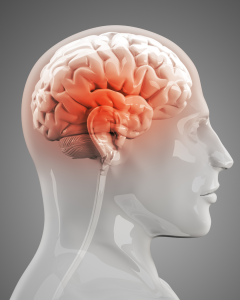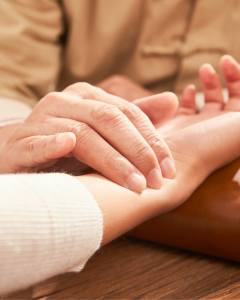Headaches are one of the most common causes of bodily complaint in the general population. They can range from a mild annoyance to debilitating pain, affecting your productivity and quality of life. More than two thirds of people would have experienced a headache once in their lives and over 50% of adults have at least one headache a year.
While over the counter medications can offer temporary relief, they often fail to address the root cause of the headache. Traditional Chinese Medicine (TCM) and Acupuncture offer a natural and holistic approach to support people with headaches. This means that we’re not just aiming for symptom relief but rather try to reduce the occurrence of headaches. In this blog we will explore how TCM may be of help when you suffer regular headaches.
Types of Headaches
 The most common type of headache is the tension headache which accounts for 21% of those with headaches. It is characterised by a dull, aching pain and is often described as a tight band around the head or pressure on the forehead or back of the head. Tension headaches are often triggered by stress, anxiety, poor posture or muscle tension in the neck and shoulders.
The most common type of headache is the tension headache which accounts for 21% of those with headaches. It is characterised by a dull, aching pain and is often described as a tight band around the head or pressure on the forehead or back of the head. Tension headaches are often triggered by stress, anxiety, poor posture or muscle tension in the neck and shoulders.
About 15% of people complain of migraines. This is usually characterised by severe, throbbing pain, usually on one side of the head. Migraines can be accompanied by other symptoms such as nausea, vomiting and sensitivity to light and sound.
A small number of people, about 1%, gets cluster headaches. These are extremely painful and occur in clusters or cyclical patterns. There is sudden, severe pain on one side of the head, usually around the eye or temple.
Classification of Headaches in Western Medicine
- Primary: migraines; tension and cluster headaches; hemicranias; hypnic (sleep) headaches; trigeminal or occipital neuralgia; headaches after exertion, coughing or sexual activity.
- Secondary: hypertension; meningitis, a bacterial or viral infection causing inflammation of the brain; intracranial haemorrhage including aneurysm; brain tumours; glaucoma; temporal arteritis (Horton’s disease); postictal (seizures)
headaches; headaches accompanying a flu or gastrointestinal or hepatobiliary disorders; hormonal causes.
It is important to judge if the headache is a symptom of more serious and life-threatening conditions, like some of the secondary headaches. It therefore should be treated as a sign of red flag if the headache is associated with the following:
- Sudden onset in a patient over 50 years of age
- Presence of neurological symptoms or signs
- Stiff neck, fever or weight loss
- After a head trauma
- Progressive increase in pain intensity and symptom severity
Chinese Medicine and Headaches
A headache, like any other pain, signifies a local stasis of Qi (energy) and/or Blood. Treatment first requires a full investigation of the local condition as well as the general patterns. Treating headaches may present with challenges, particularly
when the head pain is chronic and recurrent, due to the complexity of the patterns involved.
In Chinese medicine, the energetics of the head have complex relationships with various channel systems of the body. Diagnosis and treatment of the headache is based on the disease pattern identification, i.e. whether it is external (associated with the environmental factors) or internal in origin. It is also important to find out if the patient is showing any underlying deficiency or repletion as well as other imbalances.
The region where the head pain is experienced also provides vital information on the diseased organ systems that may be involved. For example, a temporal headache often indicates Liver/Gallbladder energy involvement and pain felt across the forehead or behind the eyes may signify Stomach/Spleen energy disharmony or issues in the digestive system.
How May We Help?
 There is no cookie cutter treatment for headaches in Chinese medicine. Everyone that comes in will be examined thoroughly by questioning and also by using pulse and tongue diagnosis. You will then receive a Chinese medicine diagnosis. This means that no 2 people with headaches will get the same treatment, treatments are highly individualised.
There is no cookie cutter treatment for headaches in Chinese medicine. Everyone that comes in will be examined thoroughly by questioning and also by using pulse and tongue diagnosis. You will then receive a Chinese medicine diagnosis. This means that no 2 people with headaches will get the same treatment, treatments are highly individualised.
If your headaches are frustrating and debilitating you it may be time to have a look at them from a Chinese medicine point of view. Once we have seen and examined you we will create a personal treatment plan for you and we can explain to you why you’re having these headaches and accompanying symptoms.
This Blog was written by our practitioner Dr I-Li Ho and you can book in for a consultation with her here or you can give us a call on 0414 067 874.

